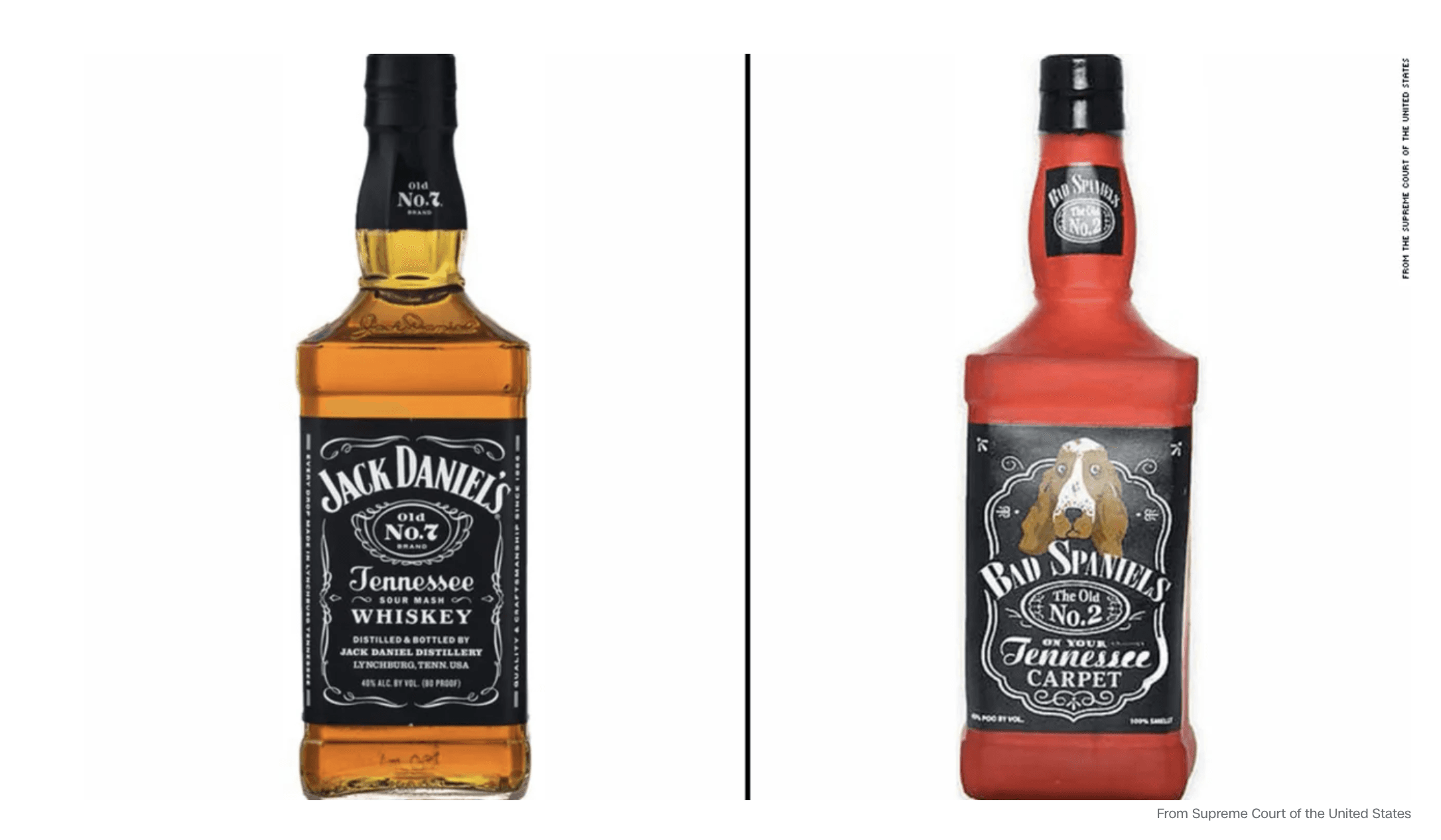Supreme Court Rules in Favor of Jack Daniels in Trademark Case

Whiskey maker Jack Daniels did not like a spoof product, a vinyl chew toy for dogs, free riding on their carefully crafted trademark. In front of the Supreme Court their lawyer argued, "Jack Daniel's appreciates a good joke as much as anyone. But Jack Daniel's likes its customers even more and doesn't want them to be confused or associating its fine whiskey with dog poop." The Supreme Court unanimously agreed with JD, overturned a previous ruling and sent the case back to a lower court for further consideration.
"A parody must 'conjure up' 'enough of [an] original to make the object of its critical wit recognizable,'" Justice Kagan wrote. "Yet to succeed, the parody must also create contrasts, so that its message of ridicule or pointed humor comes clear. ...Self-deprecation is one thing; self-mockery far less ordinary."
In other words, if you want to make a parody brand, make sure there's enough difference so that consumers don't think the brand is making a joke on itself.
share this article: facebook